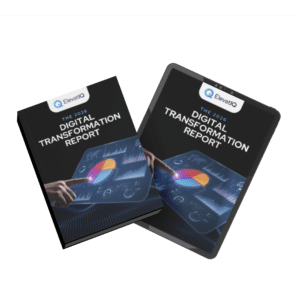Download The Ultimate Comparison Guide
Zoho CRM vs Oracle Cloud CX
Trying to decide whether Zoho CRM vs Oracle Cloud CX is the right choice for your organization? Need a straightforward comparison across essential evaluation criteria? Curious about their strengths, limitations, and future potential? You’re in the right place.
This research brief is fully independent, with no input from any CRM vendor. It delivers clear, practical insights in just over nine pages.
First, it compares both platforms side by side. You’ll see where each one excels, where they fall short, and which types of businesses they fit best.
Then, the brief dives deeper. It explores each platform’s strengths, limitations, and ideal use cases. It also shows how they fit into the larger CRM ecosystem.
Our insights come from continuous market tracking. This includes user feedback, expert interviews, industry events, proprietary data, vendor briefings, and online communities.
Whether you’re leading a digital transformation, planning a CRM investment, or simply growing your knowledge, this guide will help you make informed, confident decisions.
Questions this report will answer:
What types of businesses most commonly adopt Zoho CRM?
In what ways does Zoho CRM vs Oracle Cloud CX cater to SMBs?
How does Zoho CRM benefit companies already using other Zoho products?
How does Zoho’s approach to third-party integrations compare to HubSpot or Salesforce?
What industries is Oracle Cloud CX particularly well-suited for?
Which CRM platform offers stronger capabilities for ad spend traceability?
What makes Oracle Cloud CX a better fit for enterprises than Zoho CRM?
How do Zoho CRM vs Oracle Cloud CX differ in their support for CPQ processes?
Among Zoho CRM vs Oracle Cloud CX, which CRM platform is better suited for regulated workflow environments?
How do the integration ecosystems of Zoho CRM vs Oracle Cloud CX compare?
How does the depth of CPQ functionality differ between Zoho and Oracle Cloud CX?
This is Our
Case Study
A brief walkthrough of a recent customer who went through the process of developing the strategy to transform their current eCommerce operations to include a buy-online-and-pick-up-in-store and buy-in-store-ship-to-home business model.

Problem
A leading fashion retailer with more than 30 stores throughout the United States was struggling with the customer experience and accommodation of business models such as buy-online-pick-up-in-store due to disconnected eCommerce and fulfillment systems. They needed omnichannel experience that could transform their experience and help them compete with their larger peers.
Solution
They hired ElevatIQ to assess their as-is and to-be state and come up with the strategy to enable the needed experience. Through the series of workshops and secondary research of their data, ElevatIQ formulated a strategy with the changes in business processes, information architecture, and systems.
Outcome
The strategy resulted in a clear alignment of their executive teams with a refined understanding of their business processes and operations. The strategy also resulted in a clear understanding of the investments and solutions required to implement the strategy.


